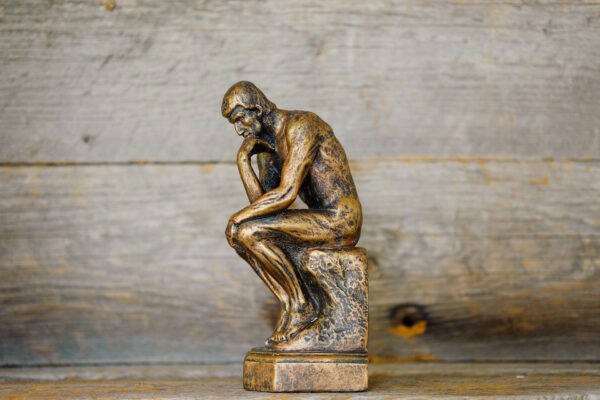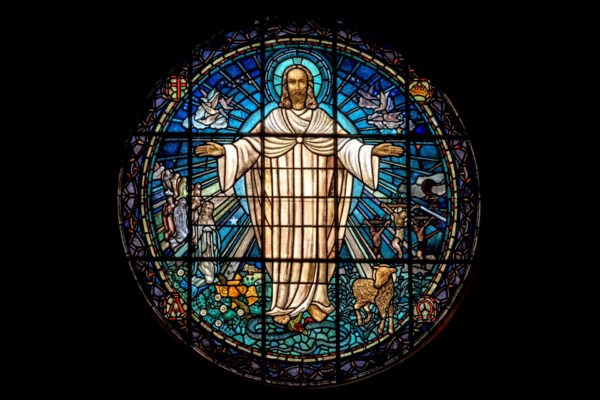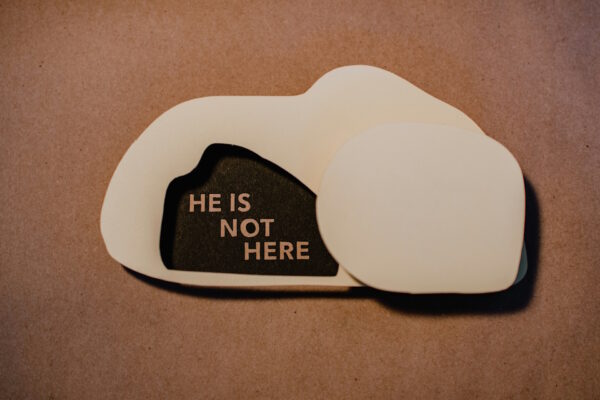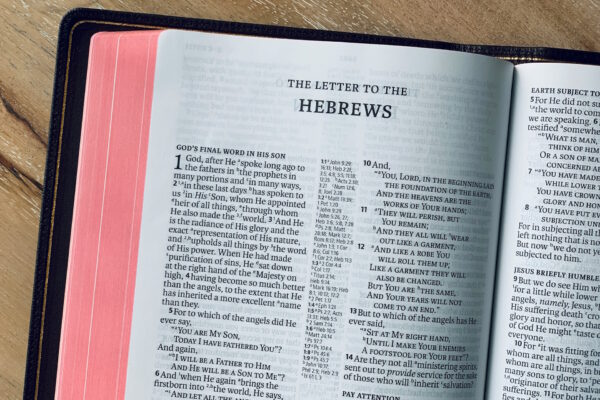* The audio for this sermon is unavailable due to a technical difficulty with the recording. The following is Mitch Bedzyk’s sermon manuscript:
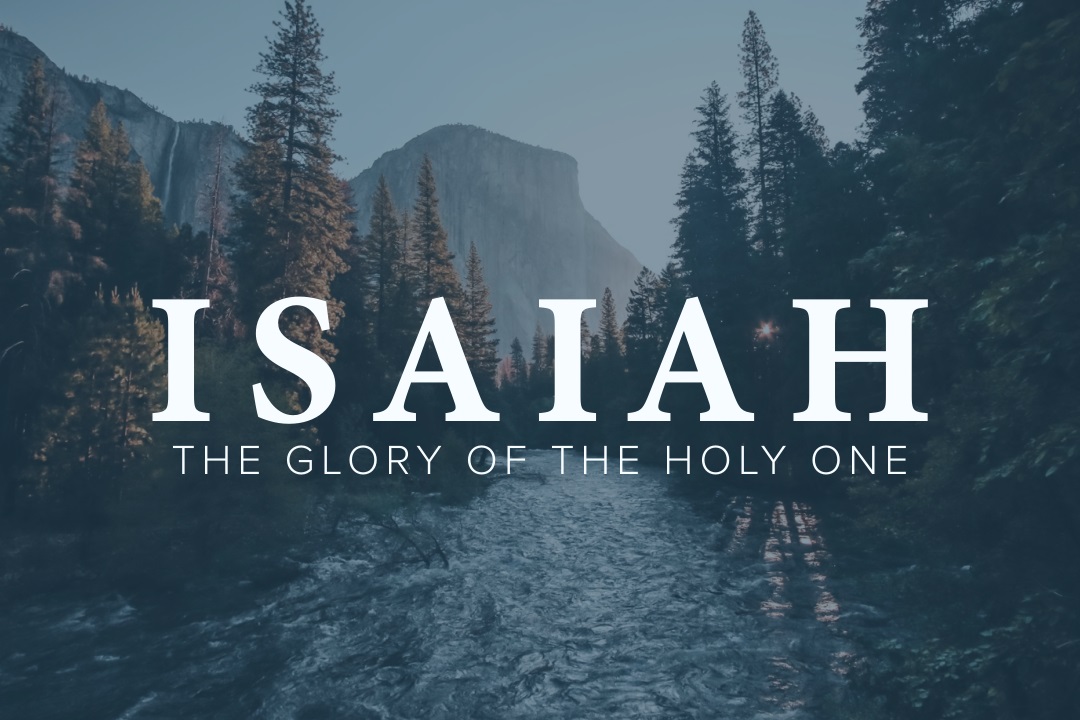
This morning we are beginning a new sermon series through the book of Isaiah. It is the most quoted and alluded to book in NT along with the Psalms. As one of the major prophets, Isaiah is brilliant literary masterpiece, packed with poetry and imagery. The book cycles between accusations of rebellion, idolatry, and unbelief, warnings of judgment, calls to repentance and faith, as well as messages of hope of the coming messianic King and the Day of the Lord, a day of judgment for God’s enemies, but peace and rest for his people. It is known as the “Romans” of the Old Testament because it is here that we most clearly see God’s plan for the world, the nations, and his people. It is also known as the “fifth gospel” because of its famous messianic prophecies.
Isaiah begins with the historical city of Jerusalem: corrupt, defiled, and destroyed. By the end it has moved to a future and eternal city: the new Jerusalem and the cosmic renewal of creation. It reveals God as the Holy One who is not only Judge, but Savior. Ultimately, Isaiah reveals the glory, Jesus Christ—the holy and anointed king who establishes God’s kingdom in righteousness. If we want to have a greater understanding & appreciation of the NT, who Jesus is, what he came to do & why, we would do well to study this book, heed its warnings, and cling to its promises.
The opening verse gives us the background to the book: it’s origin, author, scope, and time period. These kings give us a time frame ≈ 760-680 BC. By the time Isaiah’s ministry began (740 BC), the northern tribes of Israel were in decline and about to be destroyed by Assyria (722 BC), and the southern kingdom of Judah with its capital, Jerusalem, was facing a similar threat by Assyria. Isaiah saw, by divine revelation, the true state of the nation, what God was going to do, why he was doing it, and where everything was heading under his good and sovereign control.
Our text this morning is basically God’s lawsuit against his people. Isaiah begins by confronting us with who we really are, how God finds us. He holds up a mirror for us to see ourselves in our sinful state and to convict us of sin. But conviction of sin is not meant to leave us in our miserable condition, paralyzed with guilt & fear. The very fact that God speaks to us shows that he desires to heal and transform us. One pastor puts it this way:
“Conviction of sin is the lance of the divine Surgeon piercing the infected soul, releasing the pressure, letting the infection pour out…[it’s] the Holy Spirit being kind to us by confronting us with the light we don’t want to see & the truth we’re afraid to admit & the guilt we prefer to ignore. [it’s the] love of God overruling our compulsive dishonesty, our willful blindness, our favorite excuses. Conviction of sin, with the forgiveness of Jesus pouring over our wounds, is life” (Orltund, Isaiah, Preaching the Word Commentary Series)
This morning we will see that our rebellion and corruption are no match for the mercy of God. The remedy for sin that we desperately need, that God graciously provides through his Son and his Spirit, goes beyond all the cheap, distracting, symptom-treating remedies for sale in the world today. It gets to the root of our problem. It doesn’t just patch us up but makes us brand new.
The Nature of Sin (Isaiah 1:2-4)
Here at the beginning of God’s lawsuit against his people, all creation, which remains obedient & faithful to its Creator, is called upon to witness what God says about humanity. Notice who the Lord is addressing here: his children! His people! Now, Isaiah will address other unbelieving nations. His message is for all. But his primary concern is with people of God. So, we should apply Isaiah’s vision today not to America or any other nation but, first & foremost, to the church. The church is called to be a holy people and a light to the nations. So, God speaks to his church to awaken and revive them so that the world can experience the grace of God.
The charge is rebellion. This isn’t heroic rebellion against an oppressive dictator, but irrational rebellion against a loving and caring Father. It’s a refusal to recognize and accept boundaries. God brought them out of Egypt, called Israel as his son, entered into covenant with them at Sinai. He nourished them with food, water, gave them land, protected & blessed them. “Brought up” is not only raising them but exalting them to a privileged position. They were the children he adopted, loved, and delivered! They owe him everything they are, everything they have, but they have rendered him nothing but ingratitude. Their sin is inexcusable.
Look at verse 3, “The ox knows its owner, the donkey its master’s crib, but Israel does not know, my people do not understand.” The charge here is ignorance. God’s people act as if they don’t know him or what he’s done for them. They don’t see the heart of the matter. They don’t think. It’s heartbreaking madness. He compares them the donkey & ox. Even the dumbest, most stubborn animals know better than to behave like Israel is. Israel makes these animals look like geniuses. They at least know their master and follow him to the barn for food and water! Israel just wanders from one false master to another. Right from the start, we see sin exposed for what is truly is: rebellion against God, ingratitude, and ignorance. In these verses sin is portrayed as contrary to nature. It is mindless and irrational!
Here, Isaiah begins his lament for Judah with an expression of grief and doom also translated as “Woe,” a word normally reserved for wicked gentile nations. The charge of his lament is corruption. Isaiah describes Israel’s privileged position & how it was corrupted: The holy nation became sinful. They failed to hit the mark of loving God/others. The redeemed people have been weighed down and crushed with iniquity. This word caries the idea of being bent/crooked and having to live with the weight of our crooked/twisted choices. Offspring not of faithful Abraham, but of evildoers. Children meant to reflect their Father now deal corruptly & corrupt others.
How does this happen? Isaiah goes down to the root: they have forsaken the Lord, despised the Holy One of Israel, and they are utterly estranged. To forsake the Lord is the opposite of to seek the Lord. Rather than determining to be with him and be like him, forsaking is deliberately distancing ourselves from him. “Holy One of Israel” is Isaiah’s favorite name for God, (used 25x). It describes the very nature of God, all that marks him out as unique, transcendent, pure. It conveys that God is in a league of his own, worthy of all our affection & adoration. And this Holy God graciously gave himself to Israel. He’s Israel’s Holy One! And yet, they despise him and his holiness. They have turned their backs on God, gone in reverse-gear, become like the wicked pagan nations, and have broken their covenant with Yahweh. In short, God’s chosen people are indistinguishable from the wicked nations around them. One commentator sums it up this way: “the height of their privilege, to know the Lord in the fullness of his holy nature, became the benchmark of the depth of their fall” (Motyer, Isaiah, Tyndale NT Commentary).
Friends, this is a horrific but entirely accurate summary of the nature of sin: Rebellion, defiance, ingratitude, ignorance, corruption, irrationality, blindness, forsaking & despising the Holy God. God’s charges against his people show how sin is contrary to our very nature as human beings. All humanity is in covenant with God by simply existing. So, not only does God have every right to establish boundaries for us, he also does so as a loving Father. He knows what we need to flourish.
Think of it this way: To require a train to stay on the railroad tracks isn’t a violation of its basic rights; the track allows the train’s full potential to be realized. Yet, how often do we, like rebellious children, think we know what’s best for us, what will make us the happiest? Yet, like Israel, who knew better, we turn our backs on our Maker, Sustainer, & Provider. We want to do whatever we please, and we hate God’s laws and ultimately the Law Maker himself, because his laws are contrary to our sinful desires.
But can we, God’s people, really forsake the Lord? In one sense, yes. How? By treating him as the last resort rather than the source of life, rather than the fount of every blessing. We may be on the other side of the cross, we may know God’s plan of redemption in a fuller light than Israel in Isaiah’s day, but how often is the church no different than the unbelieving world? We embrace their sexual ethics & their vision of the good life; we value self-expression and self-fulfillment as the ultimate good; we waste our time & money on the same things the world is obsessed with, we talk like them, treat others like them, and are often as biblically illiterate as they are. We forsake and despise God’s word. We laugh at Israel as they make an idol at the foot of Mt. Sinai. We think we’re too modern to bow down to idols, and yet we base our lives around sports, spend every waking minute on our phones & center our families not on God’s word but 72” idols mounted in our family rooms. We’re not always exempt from the charge of rebellion and forsaking the Lord.
But before giving us the remedy, God draws our attention to our need first. We won’t see our need for the gospel until we see our sin. For many in the church today, we think skipping over the issue of sin and rebellion will make people “feel better than when they came here.” But Isaiah shows us that there is no true and lasting hope for us until we realize the cause of our trouble: our sin.
The Consequences of Sin (Isaiah 1:5-8)
As Isaiah’s lament over Judah continues, we not only see the nature of sin, but the consequences of sin. In verse 5-8, we see two images that describe the effects of sin and how clueless we can be. The first is a bruised and wounded person who doesn’t recognize his need for help.
“Why will you still be struck down? Why will you continue to rebel? The whole head is sick, and the whole heart faint. From the sole of the foot even to the head, there is no soundness in it, but bruises and sores and raw wounds; they are not pressed out or bound up or softened with oil” (Isaiah 1:5-6)
The question Isaiah asks here is basically: “Why do you keep inviting punishment? Why do you keep rebelling? Why do you keep coming back for more?! But there is no rational answer. This is a man brutally beaten within an inch of his life, with open wounds & horrific bruises on every square inch of his body that haven’t had any treatment whatsoever, and he’s begging for more. Israel is struck down (“smitten”), sick, and bruised, totally crippled from head to toe, inwardly (heart), outwardly (head, foot), without remedy (not cleansed). No part is healthy (kings, priest, and people). There is no relief for them. It’s just insanity!
This is similar to what Jeremiah said, “You have struck them down, but they felt no anguish; you have consumed them, but they refused to take correction. They have made their faces harder than rock; they have refused to repent” (Jeremiah 5:3). Not only is sin contrary to nature, but it’s contrary to reason. They ask, “why is this happening to us” and yet keep sinning, hoping things get better. They can’t put two and two together. They completely unable to draw proper conclusions and make the right responses.
The second image showing the effects of sin is an invaded, desolated, and humiliated country. “Your country lies desolate; your cities are burned with fire; in your very presence foreigners devour your land; it is desolate, as overthrown by foreigners. And the daughter of Zion is left like a booth in a vineyard, like a lodge in a cucumber field, like a besieged city” (Isaiah 1:7-8).
The country is barren, the cities burned, foreigners are devouring their land in their very presence! They have made the land desolate and overthrown. Remember that God’s goal was to create a world in which he and his people could dwell (Eden, Promised Land, provision, safety, joy, blessing, etc.). But their land was becoming a desert wasteland (de-creation!). “Daughter of Zion” is the people of Jerusalem, which was situated on Mount Zion. At that time, beautiful cities were likened to young women. But all the beauty of Judah & Jerusalem has almost completely faded away. Judah is nothing but a booth in a vineyard, a lodge in a field, a besieged city. Small huts were built in fields so that watchmen could guard the crops ready to be harvested. At the end of the harvest these huts would be abandoned in a field stripped bare of its produce. So, Jerusalem here is portrayed as vacant and deserted with nothing left to protect.
The wounded man untended & the land without defense point to the helplessness & hopelessness which forsaking the Lord brings. Even with the evidence of judgment all around them, they still will not turn back. They don’t address the root of the problem of forsaking the Lord.
Friends, isn’t this exactly what sin still does to us today? We are so stubborn in our sin! How often does this describe the relationships and habits we have? They’re killing us and yet we come back for more, wondering what’s wrong, never getting to the heart of the matter. We keep crashing up against the spiritual laws God has laid out for us. It’s like trying to jump off a building in hopes of defying gravity, yet we never learn our lesson. We continue in sexual immorality, fail to obey God’s design for marriage, and reject God’s design for gender and sexuality and wonder why our relationships are suffering, why our marriages have problems, and why our suicide and divorce rates are so high. We look to our friends, romance, material possessions and careers to satisfy us and turn those good things into idols and wonder why we’ve become addicted, insecure, anxious, obsessive, envious of others, and full of resentment. What about believers? We don’t treasure and saturate ourselves with God’s Word and wonder why fall into sin and find ourselves anxious, unable to share our faith. We despise God’s word, treat the church as optional and boring, and wonder why our kids don’t love God’s word and his church. Even as Christians, who have died with Christ, we can still suffer the effects of sin.
The Mercy of God (Isaiah 1:9)
But after exposing Israel’s rebellion & the consequences of their sin, after he confronts us with the truth we don’t want to admit and the guilt we prefer to ignore, Isaiah reminds us of the mercy of God.
“If the Lord of hosts had not left us a few survivors, we should have been like Sodom & become like Gomorrah” (Isaiah 1:9).
Do you see what Isaiah is saying? If God’s people were left on their own to fulfill their natural and sinful desires, without divine intervention, their fate would have been like Sodom and Gomorrah. Total destruction is what Israel deserved. Their willful and mindless rebellion called for the unmitigated wrath of God & eternal damnation. This is what every sin against God deserves. But the difference between the people of God & the enemies of God is the unmerited mercy of God. Israel was not spared total destruction because of their power, merit, or wisdom, but solely because of the mercy of God. Their merit called for judgment, but as the song puts it, Mercy said “No!”
This is divine preservation. There comes a point at which the Lord of mercy stretches out his hand and says “No!” to the consequences of sin and the power of sin and death. He will not let his people go any further. We are what Sodom and Gomorrah were; we deserve what they But God’s preserving grace overrules our stupid decisions and saved us from ourselves! In fact, the apostle Paul uses this exact verse in Romans 9:29 to establish the doctrine of divine sovereignty in the salvation and preservation of his people.
But why? Deuteronomy 7:6-8: “The Lord your God has chosen you to be a people for his treasured possession, out of all the peoples…on the face of the earth. It wasn’t because you were more in number than any other people that the Lord set his love on you & chose you, for you were the fewest of all peoples, but it is because the Lord loves you.” God shows mercy simply because he loves us! This is summed up in one of my favorite songs: “Amazing Grace shall always be my song of praise, for it was grace that brought me liberty I do not know just why he came to love me so, He looked beyond my fault and saw my need.”
But how can the Holy One of Israel do that? What hope is there for God’s people to be saved? Isaiah gives good news this morning for those of us who are wounded and convicted of our sin: Jesus, the servant of Lord that God promised through Isaiah was wounded too, and in our place.
“Surely, he has borne our griefs and carried our sorrows; yet we esteemed him stricken, smitten by God, and afflicted. 5 But he was pierced for our transgressions; he was crushed for our iniquities; upon him was the chastisement that brought us peace, and with his wounds we are healed” (Isaiah
All the horrors of judgment that our irrational, unreasoning sin deserved has fallen on Christ. We don’t face eternal punishment because our judgment fell on Christ as he died in our place on the cross. Our judgment day was moved from future to past. His blood now heals us, cleanses, & makes us new
! Listen to how Paul puts it: “But when the goodness and loving kindness of God our Savior appeared, he saved us, not because of works done by us in righteousness, but according to his own mercy, by the washing of regeneration and renewal of the Holy Spirit, whom he poured out on us richly through Jesus Christ our Savior, 7 so that being justified by his grace we might become heirs according to the hope of eternal life” (Titus 3:4-7)
Church, Isaiah intends to convict us of our sin the good news from Isaiah this morning is that our rebellion and corruption are no match for the mercy of God. Listen to what Deuteronomy 32:39 says: “See now that I, even I, am he, and there is no god beside me; I kill, and I make alive; I wound and I heal; and there is none that can deliver out of my hand.” Our God can wound, but he delights to heal and restore us. He intends for us to be convicted of our sins and to see how we have despised him and his only begotten Son who died in our place to save us.
For those who have not come to see Christ Jesus as your hiding place from God’s wrath, you’re headed for the only fitting place for rebellious people who despise God, which is hell. The fact that you’re hearing this right now is a testimony to the patience and kindness of God, who wants you to think about your sin. If you will you confess your sin, admit your need for healing, and place your trust in Jesus, you can experience the grace and mercy of God. Your sin-sick, broken, and wounded heart can be healed.
But for those who are God’s children this morning, who are part of his church, may we remember the mercy of our God, who “does not deal with us according to our sins, nor repay us according to our iniquities” (Psalm 103:10). May we turn to the Lord, confess our sin of treating as a last resort, and for despising his word. And as we do, we will find ourselves marveling at the mercy of God in Christ Jesus.
This sermon manuscript as been lightly edited and formatted for use on the web. No attempt has been made, however, to alter the basic extemporaneous delivery style, or to produce a grammatically accurate, publication-ready manuscript conforming to an established style template.
